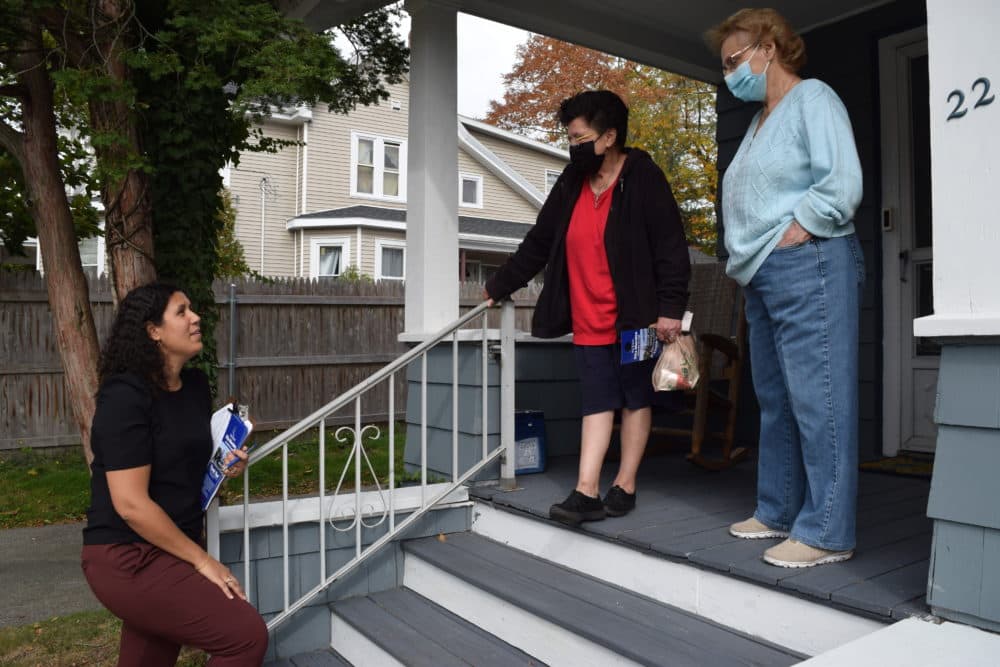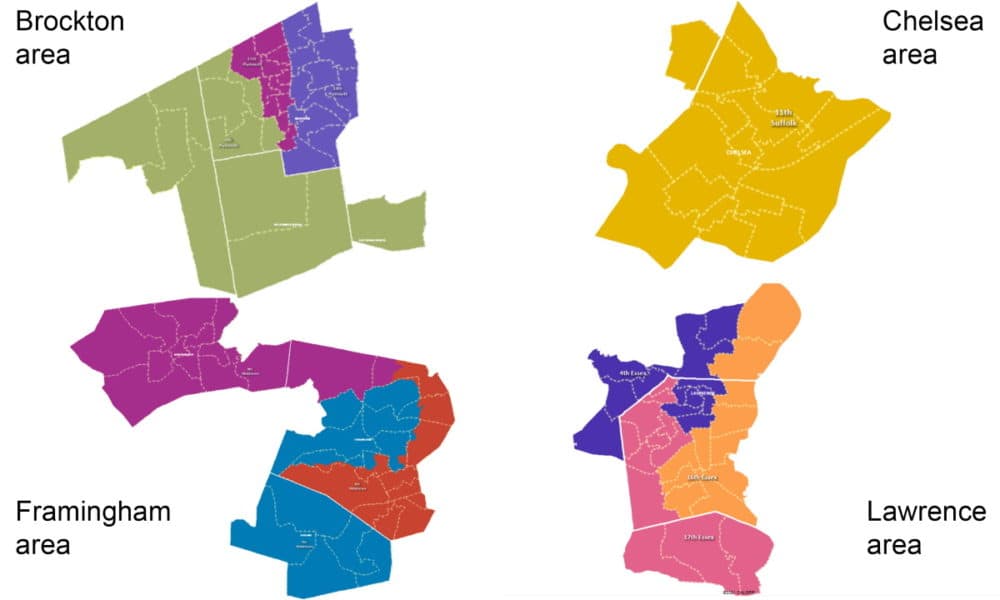Advertisement
Mass. lawmakers draw new maps to help candidates of color

Brockton voters have never sent a person of color to Beacon Hill, even though the majority of residents have long been non-white.
Now Massachusetts lawmakers are trying to change that.
The House recently unveiled a plan to move a white state representative in Brockton, Gerard Cassidy, to a neighboring district to create a vacancy. That would give a candidate of color a better shot at winning there and make history. They're also planning to create a new Senate district based in Brockton with mostly minority residents.
"I would be surprised if we didn't have an African American from Brockton in the membership a year from now," said House redistricting co-chairman Rep. Mike Moran, of Boston, during a recent hearing.
Every 10 years, states use the latest Census figures to adjust House and Senate districts. But this time, there's a concerted effort in Massachusetts to redraw the legislative borders to make it easier for people of color to win elections and reduce the lack of representation in the State House.
People of color account for one-third of the residents in Massachusetts, but just 14% of House reps and 5% of state senators.
The House redistricting plan, scheduled to be voted on Thursday, includes 33 so-called majority-minority districts, up from 20 districts today. That includes two districts in Brockton.
Lawmakers also plan to double the number of majority-minority seats in the Senate to six, including a new one in Brockton and a majority Hispanic district in Lawrence.

Many voting rights advocates praise the efforts to help candidates of color get elected.
"Massachusetts continues to grow more diverse racially and in age as well," said Geoff Foster, executive director of Common Cause Massachusetts. "We need to take that growth into careful consideration, not just for the changes we can make right now, but for the long term trajectory that our maps could take in years to come."
But tweaking the electoral maps to help candidates of color can create unintended consequences. Some local officials complain the new maps could split some communities, like Concord, which has always been in a single House district.
"There's a very strong, civic minded population in Concord that is cohesive and that thinks of itself as a unity and would very much like to be kept in the situation of having a single state representative," said Concord resident Eric Van Loon, who urged lawmakers to rejoin the town in what he called "Humpty-Dumpty style."
Advertisement
One reason why Concord may have been vulnerable in the restricting plans is that the current representative, Tami Gouveia, plans to run for lieutenant governor next year instead of seeking re-election in the House.
During the redistricting process, lawmakers typically try to protect incumbents, experts say.
For instance, they were able to move the borders of a House district in Brockton without pitting two existing state reps against each other only because President Joe Biden nominated Rep. Claire Cronin to be the next ambassador to Ireland.
"Lawmakers are drawing the maps and they don't want to hurt themselves, and that's one of the the tensions built into this system," said University of Massachusetts Amherst professor of political science Ray La Raja. "So when they draw a map, they're not going to likely make it too hard for them to win reelection."
And just because lawmakers create a district with mostly minority voters, there’s no guarantee that a candidate of color will immediately win at the ballot box.
People don’t always vote along racial lines. Sometimes multiple candidates of color wind up running and split the minority vote.
La Raja also says the power of incumbency is hard to overcome and most incumbent lawmakers are white.
"Right now, the way we have our single member districts, that's the home turf of the incumbent and they have a big advantage," La Raja said. "Name recognition, they can raise more money and the districts are carved to support them."
Brockton City Councilor Rita Mendes says minority voters are becoming increasingly engaged in the city's politics and winning local elections.
"They are standing up, they're going out to vote," Mendes said, while going door-to-door in her election campaign in a diverse neighborhood. "And I see they see hope when they see similar faces out there representing them, people that speak their language, people that know what their issues are, what their concerns are."
One of the voters Councilor Mendes spoke to while campaigning door-to-door is Nancy Glenn.
She’s a white voter who lives in the majority-minority house district that will be up for grabs next year.
Glenn says she wants to see more people of color in government. But she also says race isn’t her primary consideration when she casts her ballot.
"I don't care if you are a Black person or a Hispanic person," she said. "If you can do the job, that's what I'm voting for, you know, and that's what I care about."
Lawmakers are scrambling to get the new districts approved by both chambers and signed by the governor by Nov. 8, a full year before the next legislative election. Under state rules, legislators must live in their district a full year before the deadline.
They plan to take up Congressional districts — which don't have a similar residency requirement — later.
Correction: An earlier version of this post incorrectly listed the number of minority-majority districts included in the House plan. We regret the error.
This segment aired on October 21, 2021.
